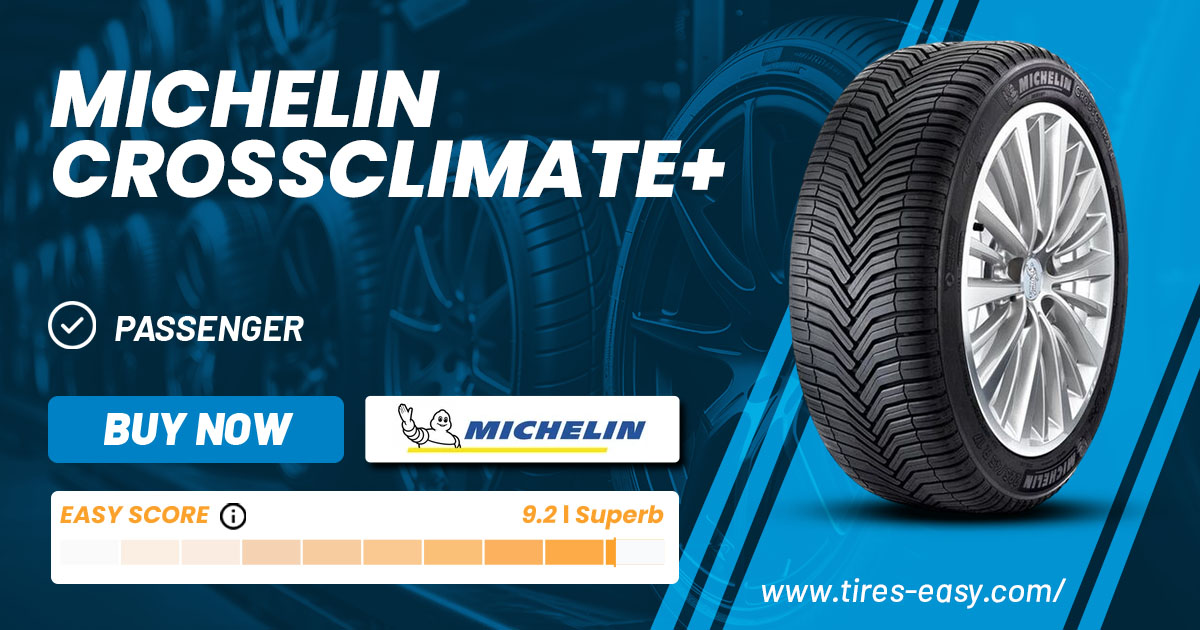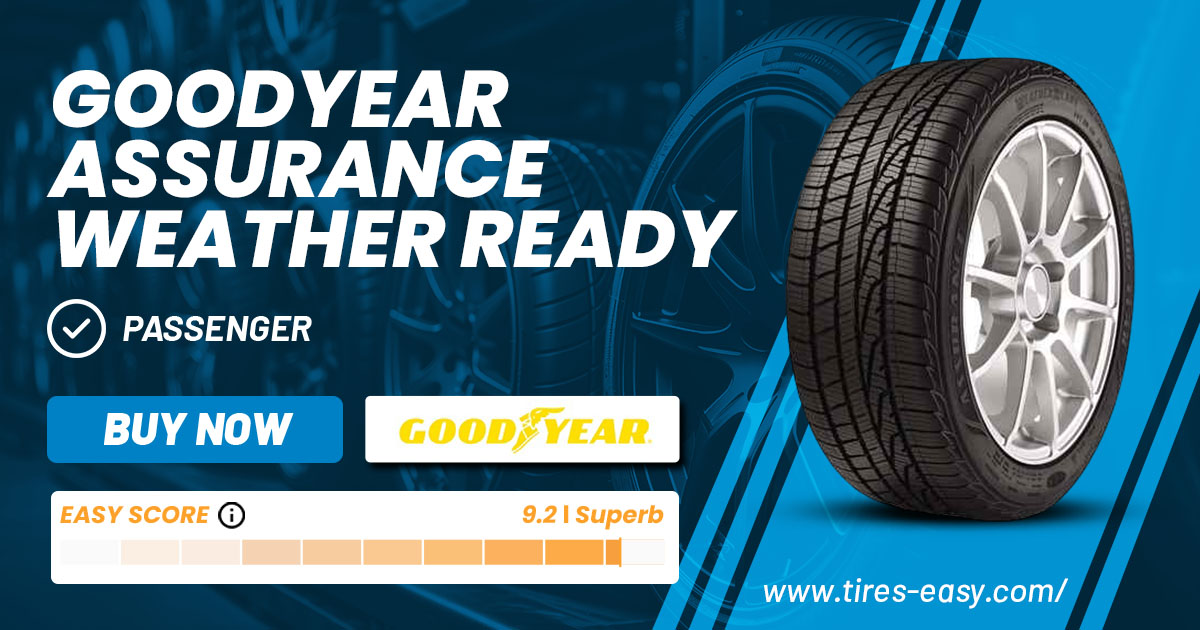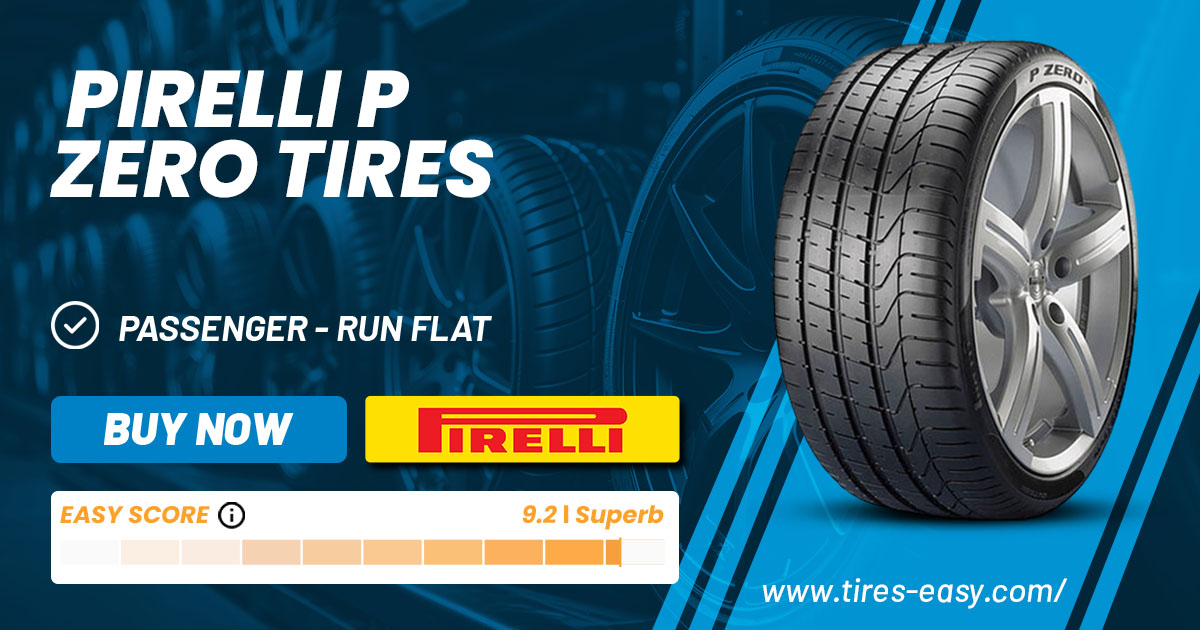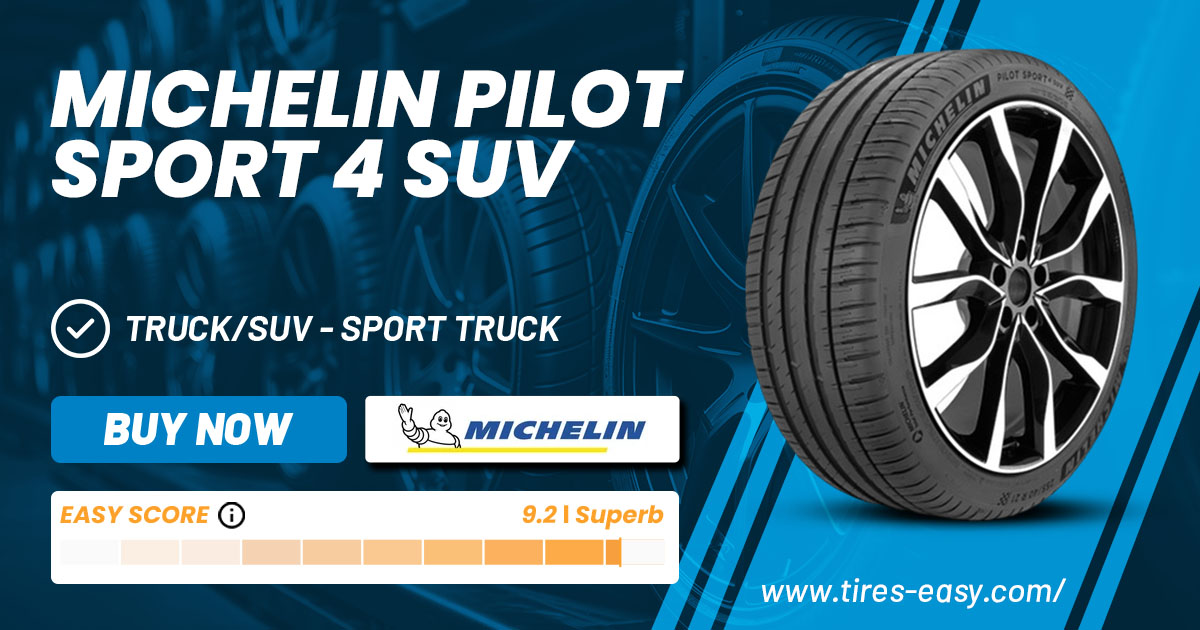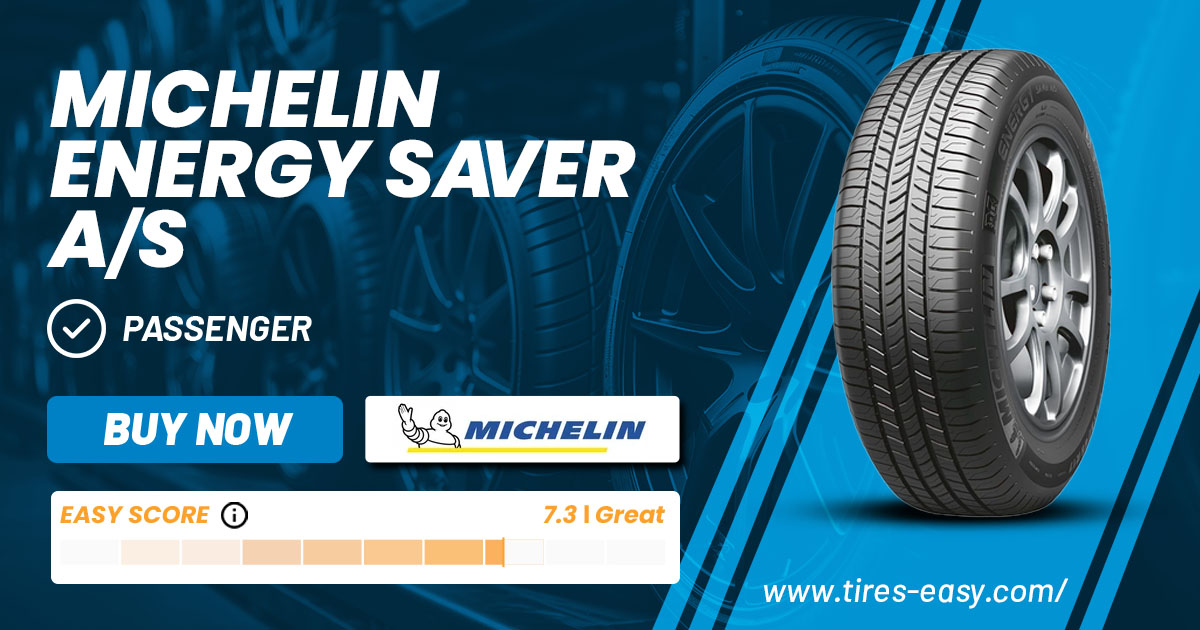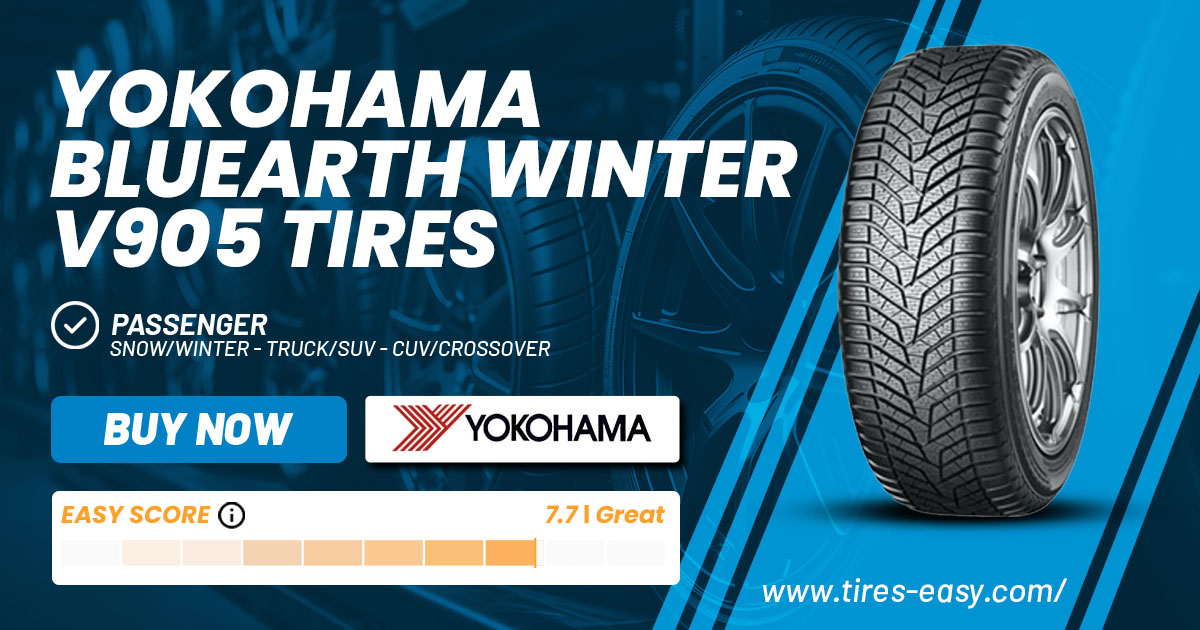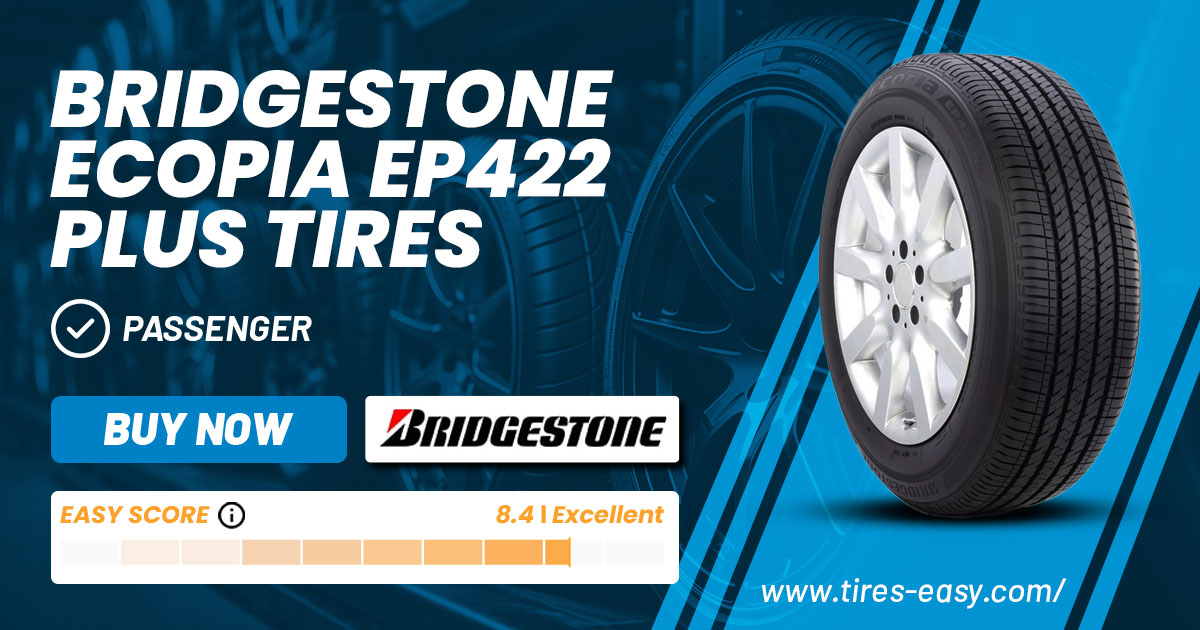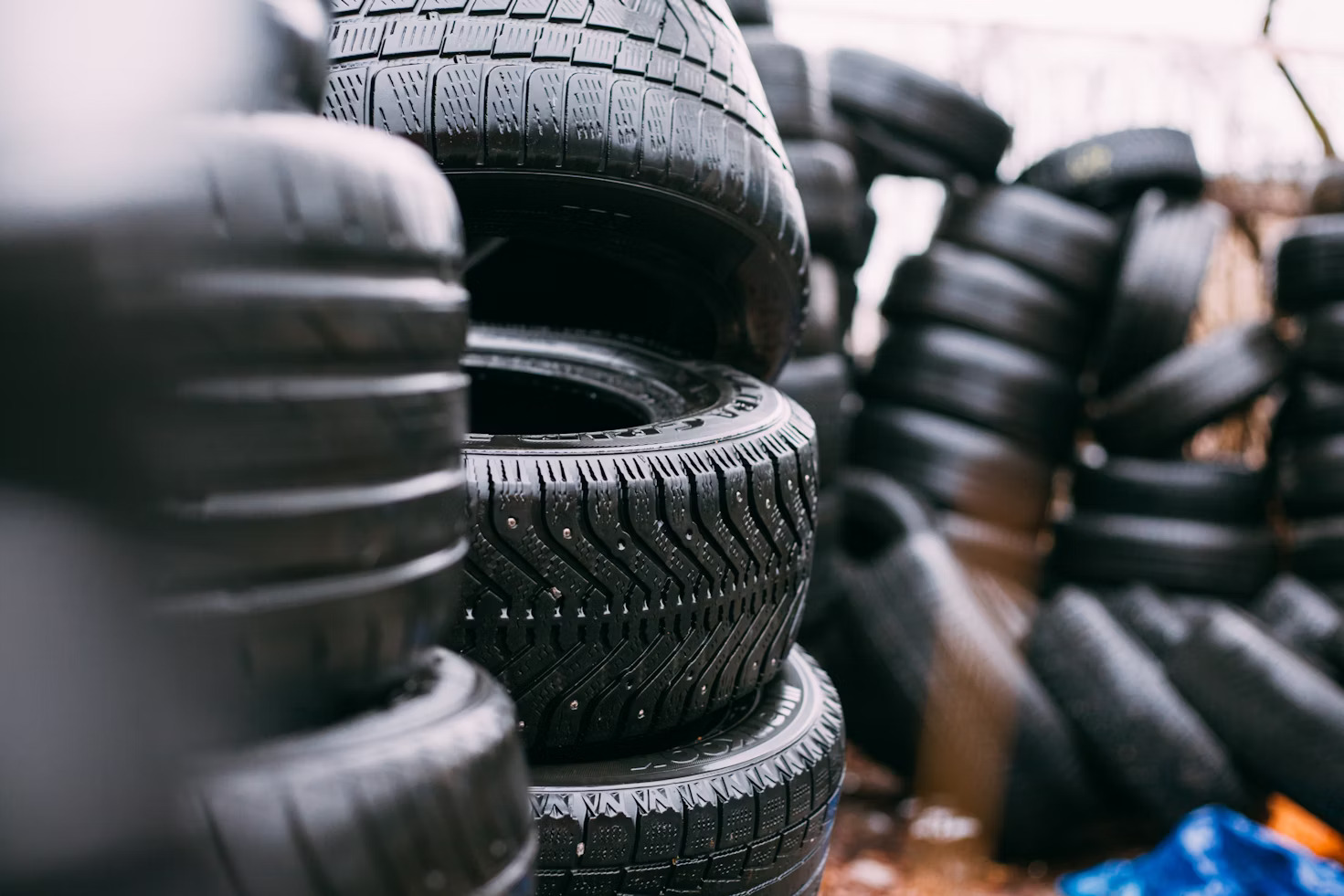Last Updated on July 25, 2025
Discovering the Ideal Tires for Your Electric Vehicles
Electric vehicles (EVs) have changed how we drive, and picking the right tires for them is crucial. For them, it is essential. That’s because regular tires don’t quite cut it for EVs. Electric cars are powerhouses with heavy batteries, so they need tires that grip the road better, carry more weight, and help you go further with less rolling Resistance (more miles on a single charge).
That’s why manufacturers have risen to the challenge, engineering tires that meet these unique requirements while ensuring a quiet, comfortable ride. Therefore, we need to understand the significance of these specialized EV tires, which we’ll be uncovering today in this article. Stay tuned to the end to see what tires are best for EVs.
Understanding Tire Specifications for Electric Vehicles
Maximizing your electric vehicle’s (EV) performance and sustainability starts with the right tires. Unlike their gasoline counterparts, EVs have unique needs. Here, we’ll delve into the specifics of EV tires, including features like low rolling resistance for extended range, enhanced durability to handle extra weight, and noise reduction for a comfortable ride. By understanding these fundamental considerations, you’ll be well-equipped to choose the perfect tires.
Tire Size and Profile
First, you must understand EV tire size and profile for safety, performance, and efficiency reasons. The right size ensures proper fit, while the profile impacts handling, range, and comfort. The tire size for EVs is usually found on the tire’s sidewall. It is represented by a series of numbers and letters that indicate the tire’s width, aspect ratio, and diameter.
- Width: The first three numbers show how wide the tire is from one side to the other in millimeters. A wider tire can make your ride more stable but might also make it harder to roll.
- Aspect Ratio: After the width, there’s a slash and two more numbers. They tell you how tall the tire is compared to its width. Smaller numbers mean a shorter sidewall, which is better for handling. More significant numbers give you a smoother ride but might not handle it.
- Diameter: The last number, usually after an “R,” tells you how big the wheel is in inches the tire fits on.
Choosing the correct tire size and profile for an EV is not just about fitment but also affects the vehicle’s overall dynamics, including handling, range, and efficiency.
Load Index and Speed Rating
The load index and speed rating are like safety labels for tires on electric cars (EVs). They need to match the weight and how fast the EV can go.
- Load Index: This number shows how much weight a tire can handle at a certain speed. Because EVs are heavier with big batteries, they usually need tires with a higher load index than those required for similar-sized combustion engine vehicles.
- Speed Rating: This letter shows a tire’s maximum speed with a specific load. Even though EVs can accelerate fast, they’re not made for super high speeds. So, the speed rating doesn’t have to be as high as a speedy sports car but still needs to match how fast the EV can go.
Adhering to the specified load index and speed rating is essential for the safety and performance of EVs. If the tires are underinflated or carry too much weight, it could lead to tire problems and even dangerous driving situations.
Rolling Resistance and Efficiency
Rolling Resistance refers to the energy a tire needs to keep moving on the road. It is a critical factor for the efficiency and range of an EV.
- Low Rolling Resistance: Low rolling resistance tires make vehicles more fuel-efficient and increase the range of electric cars. Rolling Resistance is affected by the tire’s tread, sidewall, and rubber. Electric vehicle tires are designed to reduce energy consumption by optimizing these components.
- Energy Efficiency: Tires can use up to 20% of a vehicle’s energy, so reducing rolling Resistance is crucial for electric cars to travel further without using as much battery power.
Manufacturers use specialized materials and techniques to lower rolling Resistance in EV tires, which helps extend the vehicle’s range on a single charge.
Noise Reduction Features
Electric cars are quieter than regular ones, so any noise from the tires stands out more in an EV.
- Noise Reduction: EV tires have features that reduce road noise. This makes the ride more comfortable and quiet. This can include specialized tread patterns or noise-dampening technologies within the tire.
- Acoustic Comfort: Some tire manufacturers have developed foam liners or other materials that absorb sound waves and reduce the noise entering the vehicle’s cabin. This technology benefits EVs, where the lack of engine noise means that other forms of noise are more pronounced.
EV tires are meticulously engineered to address the unique challenges of electric vehicles. Every aspect, from size and profile to noise reduction and load capacity, is critical in maximizing safety, performance, and driver experience. As the EV market flourishes, tire manufacturers pour resources into R&D to refine these specifications, propelling electric mobility forward.
Importance of Selecting the Right Tires for EVs
Now that the essential terms are understood, here are the reasons you should even care about selecting the right EV tire;
- The Torque (Grip): You must care about what tire you are picking (and whether these tires fit. It would be best to have tired to grab the road to ensure a safe and enjoyable ride. Despite being for EVs, the wrong tires may not give you the proper grip you desire.
- The stability: Electric cars are generally heavier than their internal combustion counterparts due to the weight of the battery packs. Therefore, the tires must be solid and stable to handle this extra load without compromising performance. Nonetheless, this varies from vehicle to vehicle.
- Mile Maximization: Unlike gas-powered cars, EVs rely heavily on efficient energy use to maximize range. Tires with low rolling Resistance act like smooth pavement for your vehicle, requiring less energy to keep it moving. This translates to a noticeable boost in the range – a significant concern for any EV driver!
- Durability and Longevity: Frequent tire replacements aren’t ideal for anyone. EV-specific tires are designed for more extended wear and tear, saving you money and reducing environmental impact—but that’s only when you choose the right tire for your electric car.
- Noise Reduction Levels: Choosing tires designed to minimize road noise is critical to maintaining the smooth, peaceful driving experience that people love about electric cars.
What Makes Electric Vehicles Tires Different?
The design and construction of tires for electric vehicles have to address several unique demands.
- Instant Torque Delivery: Unlike gas engines that slowly build up power, EVs have instant torque (or control). This is great for acceleration but can wear down regular tires quickly. EV tires are built to be more burdensome to handle this electric punch.
- Increased Vehicle Weight: The battery packs that power EVs are heavy. Therefore, EV tires must be strong enough to carry this extra load without wobbling or compromising safety.
- Energy Efficiency and Range: Electric vehicles are efficient, use less power, and can travel far on one charge. That’s why tires with low rolling resistance are critical. They help the car use less battery power to keep moving, so you can travel further on a single charge.
- Tread Patterns and Compounds: EV tires are different from regular tires. They must have a good grip and be durable to handle the high torque. The tread patterns are made to reduce road noise, which is more noticeable in the near-silent operation of EVs.
- Regeneration and Braking: EVs use regenerative braking, which puts a different kind of stress on the tires. EV tires are designed to handle this unique braking style and minimize wear.
Fortunately, tire manufacturers are constantly innovating to create tires specifically designed for electric vehicles. These tires help your car perform its best, go further, and stay safe.
The Best Tire Types for Electric Vehicles
Finally! It is time to understand the best tires for different EVs. However, we’ll start with the best tires designed for particular seasons.
All-Season Tires
All-season tires are like the all-around athletes of the tire world. They handle different weather conditions well, from rainy days to light snow (think surprise winter flurries, not blizzards!). This versatility makes them popular for electric vehicle (EV) drivers because they work year-round.
Pros:
- Versatility: All-season tires suit various weather conditions, from dry to wet to light snow.
- Cost-effective: They can be more economical than buying separate summer and winter tires.
- Convenience: Eliminates the need for seasonal tire changes.
Cons:
- Compromise: While they are great for most situations, they are not the answer to all problems. For instance, it may not be the best choice for extreme weather conditions like heavy snow or scorching climates.
- Performance: It may provide a different level of performance in terms of grip and cornering than summer or performance tires in warm weather.
Top All-Season Tires for EVs
Manufacturers have developed all-season tires that cater specifically to the unique requirements of EVs. They help your EV roll farther on a single charge and can handle the extra weight of those battery packs. Some of these tires include:
Performance Tires
Performance tires are designed for high-speed and precise handling, and they can be a great addition to the sportier EVs on the market that are designed with performance in mind.
Why High-Performance EVs?
- Enhanced Handling: Better grip and responsive steering at higher speeds.
- Improved Traction: The design is made for the most contact with the road. This gives a better grip when accelerating.
- High-Speed Stability: Constructed to remain stable and secure at higher velocities.
Top Performance Tires for EVs
Some of the leading options in the performance tire category for EVs include the
Pirelli P Zero
Michelin Pilot Sport 4.
Both options offer excellent dry and wet traction while accommodating electric vehicles’ unique torque and load characteristics.
Winter Tires
Winter tires are made to handle extreme winter situations like snow, ice, and extreme cold temperatures. For electric cars, having the right tires is essential because they can reduce the range in cold weather, keeping things efficient!
Importance of Winter Tires for Cold Weather Conditions
- Improved Safety: Winter tires are essential for safety because they have unique designs and rubber that keep them flexible in the cold, providing better grip and brakes.
- Maintained Efficiency: They also help keep efficiency by countering the reduced battery performance caused by cold weather and preventing the increased rolling Resistance from snow and slush from decreasing the range even more.
Best Winter Tires for Electric Vehicles
The Bridgestone Blizzak WS90 and the Michelin X-Ice Xi3 are among the top winter tires that can provide the traction and stability needed for EVs in harsh winter conditions while offering low rolling Resistance.
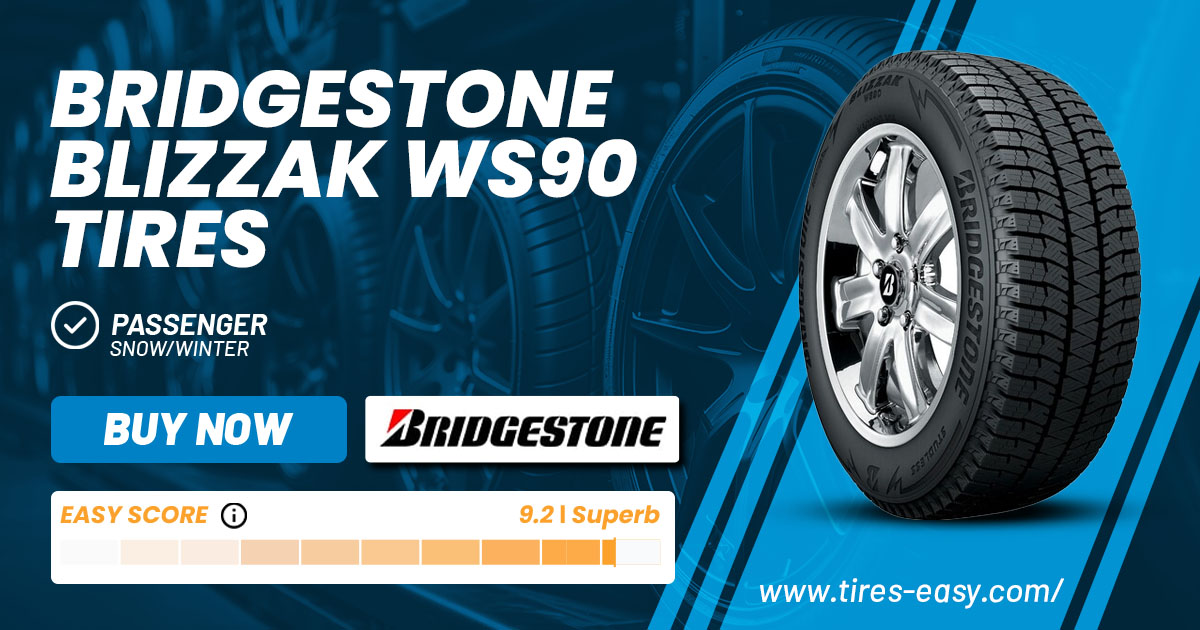 |
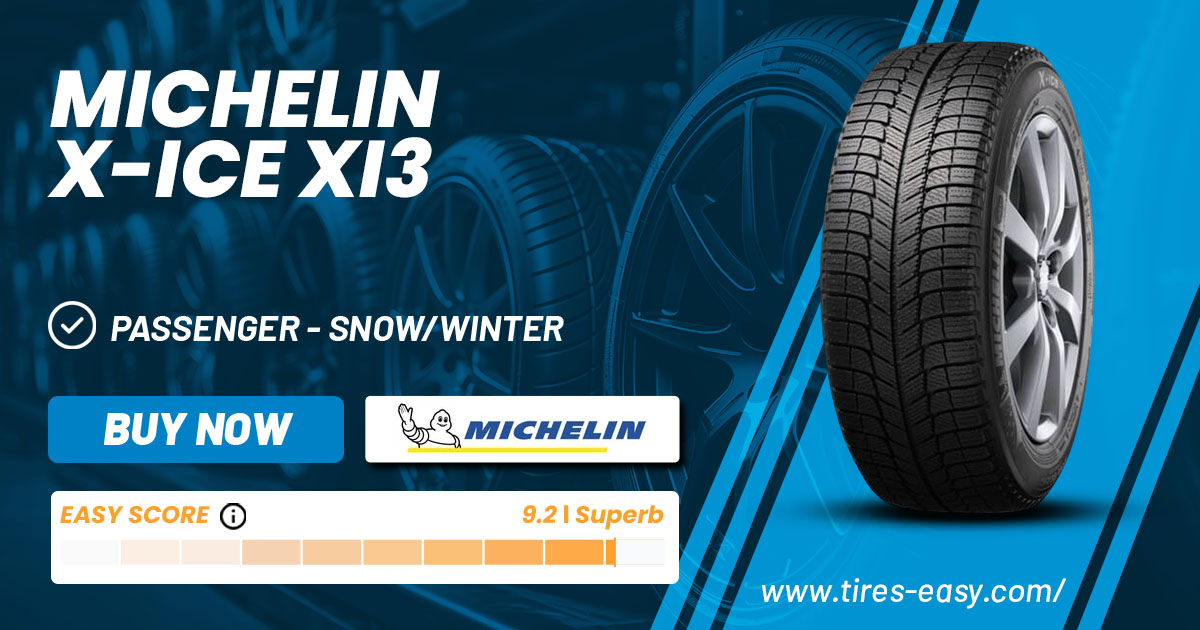 |
Eco-Friendly Tires
Eco-friendly tires prioritize environmental responsibility throughout their lifecycle. This is achieved by utilizing materials and manufacturing processes that minimize environmental impact. Additionally, these tires frequently boast lower rolling Resistance, which translates to improved vehicle efficiency.
Features and Benefits
- Sustainable Materials: Tires made with renewable materials and designed to minimize environmental impact.
- Energy Efficiency: Your tires will roll more quickly, so your car can go farther on less fuel.
- Longevity: Often created to wear down more slowly, you’ll need to replace them less often and produce less waste over time.
Top Eco-Friendly Tires for EVs
Noteworthy eco-friendly tires include the
- Michelin Energy Saver A/S boasts an extended tread life and excellent fuel efficiency.
- Yokohama BluEarth, Winter V905 Tires enhance high-temperature stability and low-temperature flexibility for a better and more stable ride.
Model-Specific Recommendations
Besides seasons, there are also varying tire types based on the vehicle brands. Below are some tire specifications and features for specific EV models.
Tires for Tesla Vehicles
Tesla’s high-performance models use Michelin Pilot Sport 4 tires, while their more range-focused models may benefit from Michelin Primacy MXM4 tires with lower rolling Resistance.
Tires for Nissan Leaf
The Nissan Leaf can use Bridgestone Ecopia EP422 Plus tires for increased range and durability to handle the Leaf’s weight.
Tires for Chevrolet Bolt EV
The Chevrolet Bolt EV can choose between Michelin Energy Saver A/S tires for maximum range or Continental PureContact LS tires for a balance of efficiency and all-season traction.
It’s also important to note that some EV manufacturers have partnered with tire manufacturers to develop designed vehicle tires. These OEM (Original Equipment Manufacturer) tires are often a safe bet for drivers who want to maintain the driving characteristics the vehicle was initially designed to deliver.
Unveiling the Unique Features of Leading Tire Brands
Here, we explore four leading brands and their EV-focused offerings, highlighting features that optimize performance and efficiency for your electric ride.
Michelin:
Renowned for innovation, Michelin offers EV-specific tires like the Pilot Sport EV. This tire prioritizes low rolling Resistance for extended range while maintaining exceptional handling and grip for a dynamic driving experience.
With a strong presence in the EV market, Michelin designs tires that enhance the performance and efficiency of electric vehicles, ensuring a blend of safety, longevity, and energy efficiency.
Unique Features:
- Energy Saver Construction: Reduces rolling Resistance for increased electric range.
- Total Performance Technology: Balances durability, wet grip, and energy efficiency.
- Acoustic Technology: Reduces interior noise, complementing the quiet EV ride.
- Green X Labeling: Marks tires that have a high level of energy efficiency.
- Advanced Silica Tread Compounds: Improves grip without compromising tire life.
- Reinforced Sidewalls: Support the additional weight of EV batteries.
- Michelin Primacy EV-Specific Design: Optimized for the unique demands of electric vehicles.
- Low Rolling Resistance: Aids in achieving better mileage and longer battery life.
- High-Traction Tread Patterns: Enhance handling and safety on wet roads.
- Self-Sealing Technology: Available in some models for puncture resistance.
Continental:
A frontrunner in tire innovation, Continental boasts a wide range of tires, including those specifically designed for electric vehicles. Their focus? Safety, performance, and minimizing environmental impact.
Unique Features:
- EcoContact Series: Tailored for fuel economy and low rolling Resistance.
- ContiSilent Technology: Reduces noise for a quieter driving experience.
- ContiSeal Technology: Offers self-sealing capabilities for punctures.
- Electric Traction Compound: Specially formulated for the torque of EVs.
- ContiAdapt: Adapts to road conditions for safety and efficiency (concept tires).
- Taraxagum Initiative: Incorporates dandelion rubber to reduce environmental impact.
- High Performance in Wet Conditions: Ensures safety during rainy weather.
- Reinforced Structures: Cope with the additional weight of EVs.
- Enhanced Durability: Long-lasting tread life to match extended EV battery life.
- Conti.eContact: Specifically designed for electric and hybrid vehicles.
Goodyear:
Goodyear is one of the world’s most iconic tire brands, offering advanced tire solutions for various vehicles, including electric ones. Committed to sustainable mobility solutions, Goodyear introduces the ElectricDrive line. These tires focus on low rolling resistance and long wear life, which are ideal for maximizing EV range and minimizing replacement frequency.
Unique Features:
- SoundComfort Technology: Minimizes noise for a quieter ride in EVs.
- EfficientGrip Performance: For EVs, designed with an emphasis on low rolling Resistance.
- Durawall Technology: Increases the tire’s Resistance to cuts and punctures.
- Active Braking Technology: Improves stopping distances on wet and dry roads.
- Electric Drive Technology: Made to handle instant torque and heavier loads of EVs.
- Assurance MaxLife: Tread designed to extend the tire’s life.
- Weather Reactive Technology: Adapts to seasonal conditions for all-year usability.
- Fuel-Saving Tread Compound: Enhances fuel efficiency by reducing energy loss.
- EV Specific Markings: Easy identification for tires suitable for electric vehicles.
- Aerodynamic Sidewall Design: Helps to reduce drag and thus improve battery range.
Pirelli:
Pirelli is a pioneer in tire technology, renowned for its high-performance tire solutions, often associated with luxury and sports car segments. Designed specifically for EVs, the tires combine low rolling Resistance with high load-carrying capacity to support heavier battery packs. Additionally, they offer reduced noise levels, keeping your EV ride quiet and comfortable.
Unique Features:
- Pirelli Noise Cancelling System (PNCS): Reduces cabin noise, benefiting the silent nature of EVs.
- Elect Marking: Identifies tires specifically developed for electric and plug-in hybrid vehicles.
- Low Rolling Resistance: Aids in preserving battery life and extending range.
- Seal Inside Technology: Allows you to keep driving after a puncture.
- High Mileage Compound: Ensures long tread life even with the high torque of EVs.
- Perfect Fit Strategy: Tires developed for specific EV models for optimal performance.
- Wet Grip Focus: To ensure safety in adverse weather conditions.
- High-Performance Materials: Designed to maintain integrity under electric vehicle demands.
- Cyber Tire Technology: Smart tire capabilities with the potential for data gathering and interaction with vehicle systems.
- Scorpion Verde All Season Plus II: EVs requiring premium crossover/SUV tires with all-season capabilities.
Comparing Tire Brands and Models
Not all brands and models are created equal when equipping an electric vehicle (EV) with the right tires. Given the unique requirements of EVs, from heavier curb weights to immediate torque delivery, choosing the right tire can substantially impact performance, range, and safety. Therefore, the following criteria are essential when comparing tire brands and models for EVs:
- Rolling Resistance is the force that acts against a tire as it rolls on a surface. Recall that a lower rolling resistance means higher efficiency and extended range.
- Tire Longevity
- Load Capacity
- Traction and Handling. Tires should provide reliable grip and handling to cope with the instant torque characteristic of electric motors.
- Noise Level
- Price
Maintenance Tips for EV Tires
Keeping your electric vehicle (EV) tires in top shape is crucial for their durability, performance, and safety. EVs, being a bit weightier and having that instant torque, can cause different wear patterns on tires compared to regular vehicles with internal combustion engines. Here are some critical tips for maintaining your EV tires in excellent condition.
Regular Inspection and Rotation
- Inspection: Take a good look at your tires regularly to catch any early signs of damage or wear. Look for cuts, punctures, bulges, or anything stuck in the tread. Make sure the sides of the tires are free from damage.
- Rotation: Rotate your tires every 5,000 to 7,500 miles, as most tire and vehicle experts recommend. Electric cars, with their unique weight distribution from the battery, need even tread wear, making rotation crucial.
- Alignment and Balancing: Keep an eye on your wheel alignment and balance. If things are off, it can mess with how your tires wear and how your ride handles. When you rotate your tires, balance them to avoid wobbles and uneven wear.
Monitoring Tire Pressure
- Pressure Checks: You must check your tires at least once a month to ensure they’re correctly inflated. Electric vehicle (EV) tires may have different pressure requirements than regular vehicles, so always refer to the manufacturer’s specifications.
- Impact on Range: Keeping your tires properly inflated reduces rolling Resistance, directly influencing your vehicle’s range. On the other hand, under-inflated tires can decrease your range by making the car use more energy to move.
- Use of TPMS: Many EVs have a Tire Pressure Monitoring System (TPMS) that alerts you to significant pressure changes. While TPMS is functional, it’s not a substitute for manual checks. It typically warns of low pressure only when it’s significantly low. Despite this tech, regular manual checks are crucial for several reasons:
- Precision: TTPMS provides general monitoring and may not offer the most accurate readings. Regular manual checks with a reliable gauge allow precise measurements, enabling fine adjustments for optimal performance and range.
- Seasonal Adjustments: Tire pressure can change with temperature shifts. Cold weather decreases pressure, while hot weather increases it. Regular manual checks, especially during seasonal changes, help adjust tire pressure accordingly to maintain optimal inflation levels.
- Safety: Correct tire pressure is not just about efficiency; it’s a significant safety concern. Over- or under-inflated tires can affect handling, leading to increased braking distances, reduced traction, and a higher risk of tire failure.
- Even Wear: Consistently maintaining the correct tire pressure ensures even wear. This extends tire life and preserves the handling characteristics of your EV, which is crucial for stability and efficiency.
- Pre-emptive Action: Regular manual checks can catch slow leaks that TPMS might miss. Identifying a slow leak early can prevent a flat tire and potential roadside emergencies.
While TPMS (Tire Pressure Monitoring System) is a valuable tool for detecting significant pressure loss in EV tires, it’s not a substitute for regular manual checks. Proper tire pressure is essential for optimal EV performance because it maximizes efficiency, extends range, and contributes to safety. Therefore, incorporating manual tire pressure checks into your routine maintenance schedule is essential.
Tread Wear and Replacement Indicators
Proper tire maintenance is crucial for the safety and performance of any vehicle, and this is particularly true for electric vehicles (EVs), which place unique demands on their tires. One of the critical aspects of tire maintenance is monitoring tread wear and understanding when tires need to be replaced. Here, we’ll explore the indicators that signal tread wear and the need for tire replacement.
Tread Depth
- Legal Requirements: The legal minimum tread depth in the United States is 2/32 of an inch. Driving on tires with tread worn down past this point can significantly increase the risk of accidents due to reduced traction, especially in wet conditions.
- Measurement Techniques: A tread depth gauge is designed to measure tire tread depth. Another standard method is the penny test, where a penny is inserted into the tread groove with Lincoln’s head upside down. If you can see all of Lincoln’s head, it’s time to replace the tire.
- Manufacturer Indicators: Many tires have built-in tread wear indicators—raised sections spaced intermittently in the bottom of tread grooves. When the tread is worn down to the level of these indicators, it’s a clear sign that the tires need to be replaced.
Wear Patterns
- Even Wear: Regular checks can reveal if the tires are wearing evenly across their width. Even wear indicates that the tires are inflated and the vehicle is aligned perfectly.
- Irregular Wear: If the tires show uneven wear, such as more wear on one side of the tire, it could indicate issues with alignment, suspension components, or improper inflation.
- Center vs. Shoulder Wear: Wear in the center of the tire often suggests over-inflation, while wear on the shoulders (edges) of the tire could indicate under-inflation.
Replacement Indicators
- Age of Tires: Even if the tread is not worn down, tires should be inspected regularly and typically replaced every six years, as recommended by tire manufacturers, due to the degradation of rubber compounds over time.
- Visual Damage: Look for signs of cracking, cuts, bulges, or other damage. Damage to the sidewall or tread can weaken the tire structure and increase the risk of tire failure.
- Performance Issues: Any noticeable performance issues such as vibrations, pulling to one side, or changes in driving dynamics can be indicators of tire problems.
- Post-Repair Condition: If a tire has been repaired due to a puncture, it’s essential to monitor it closely. Repeated or extensive repairs can affect the structural integrity of the tire.
Importance of Timely Replacement
- Safety: Worn tires significantly compromise the vehicle’s safety by impacting braking distances, handling, and the risk of hydroplaning on wet roads.
- Efficiency: For EVs, efficiency is paramount. Worn tires can increase rolling Resistance, reducing the vehicle’s range on a single charge.
- Driving Experience: Good tires are fundamental to the driving experience, providing comfort, stability, and performance. As EVs are generally quieter, tire noise can be more noticeable, and new tires produce less noise than worn ones.
Staying vigilant about tire tread depth and wear patterns is essential for maintaining the performance and safety of electric vehicles. By regularly checking these indicators and understanding the appropriate time to replace tires, EV owners can ensure their vehicle continues to operate efficiently and safely. Always refer to the vehicle’s manufacturer guidelines and consult with a tire professional when assessing tire condition and making decisions about tire replacement.
Tires Easy: The Hub for the Perfect EV Tires!
Having explored the various options for the best tires for your electric vehicles, you’re now equipped with the knowledge to make an informed decision. However, knowledge is only the first step; the next step is choosing the vehicle that best fits your driving habits. At Tires Easy, we understand the unique needs of EV drivers and offer a curated selection of top-quality tires designed to enhance the performance of your electric car.
Whether you’re looking for tires that provide longevity, enhanced grip, or superior comfort and efficiency, you’ll find various options to suit your requirements. Our user-friendly platform makes finding and comparing tires simple, ensuring you get the perfect match for your vehicle.
Be sure to optimize the performance and efficiency of your electric vehicles. Head to Tires Easy now to browse our selection and purchase the ideal tires for your EV. With our seamless shopping experience, you’re just a few clicks away from finding the ultimate tires that promise safety, durability, and peace of mind.
Shop Tires for Your EV Today
FAQs
What are EV tires?
EV tires are specifically designed for electric vehicles. They often feature a lower rolling resistance to enhance battery range reinforced construction to support the additional weight of EV batteries. They are engineered for a quieter ride to complement the reduced noise levels of electric vehicles.
What tires are used on electric vehicles?
Electric vehicles use a range of tires, including all-season, performance, and winter tires, tailored for high efficiency, durability, and the capacity to handle the instant torque and heavier weight associated with EVs.
Do electric vehicles need special tires?
Yes, electric vehicles benefit from special tires designed to handle their unique characteristics, such as heavier weight due to batteries, instant torque delivery, and the need for increased energy efficiency to maximize driving range.
Do EV cars need special tires?
Special tires for EV cars are recommended to cope with their unique performance characteristics, including increased weight and torque. These tires are optimized for lower rolling resistance, durability, and quieter riding.
What brands are EV tires?
Several tire brands offer EV-specific tires, including major manufacturers like Michelin, Bridgestone, Goodyear, and Continental. These brands have developed lines such as Michelin Energy Saver A/S and Bridgestone Ecopia that are specifically geared towards electric vehicles.
Do EV tires wear out faster?
EV tires can wear out faster if not explicitly designed for electric vehicles, as the higher torque and weight of EVs can lead to increased wear. However, EV-specific tires are made to be more durable to counteract these effects.
Which tire is best for EVs?
The best tire for an electric vehicle depends on the driver’s needs but generally includes those with low rolling resistance for energy efficiency, like the Continental PureContact LS or the Goodyear Assurance WeatherReady for diverse weather conditions.
The best tire for an EV depends on various factors such as driving conditions, climate, vehicle model, and driving habits. However, tires with low rolling resistance, high durability, and noise-reduction features, like the Michelin Energy Saver A/S or the Bridgestone Ecopia EP422 Plus, are often recommended for EVs.
-
Automotive Specialist
-
Proofreader
-
Writer




